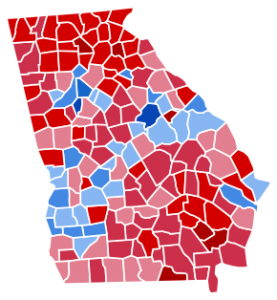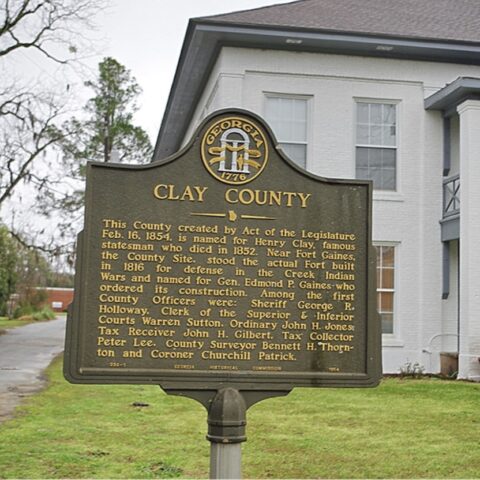By: Cait Felt

As the 2014 Georgia gubernatorial race heats up, the individual platforms of candidates are becoming increasingly important to voters around the state. Many of us know a bit more about current Gov. Nathan Deal and State Sen. Jason Carter, but there are two other men vying for the Republican candidacy and the chance to run in the general election against State Sen. Carter. Both of them have a lot to say about economic well-being, education and scholarship systems, and the overall health of our state. These men recently sat down to interviews with the Georgia Political Review to explain their campaigns in more detail and spread their ideas to a larger electorate.
Mayor David Pennington of Dalton, Ga., says that his experience as a businessman sets him apart from his opponents, and he asserted through his interview that improving the economic welfare of our state is the solution to solve many problems. He believes that small businesses, when put together, add the majority of jobs in Georgia, and that they are also the first hit by recession and other economic problems. Since he is “a lifelong businessman, not a politician,” he claims that he is the only candidate to truly understand and have the motivation as well as ability to fix these problems. He cites polls claiming that Georgia is among the least competitive states economically, and claims inspiration from conservative economic policies in North Carolina (such as setting a flat income tax rate regardless of income), which quickly increased the overall economic well-being in that state.
Mayor Pennington can point to his policies in Dalton, Georgia as proof that his plan works. He has been the proponent of multiple tax decreases in his city throughout his term as mayor, even taking the dramatic action of dropping the sales tax to 5 percent in 2012 (though this was only temporary). Since his term as mayor began in 2008, the unemployment rate in Dalton has decreased as the overall economic expansion has increased at a rate much higher than that of neighboring cities.
An increase in governmental transparency also proves an important issue for Mayor Pennington, as Gov. Deal has faced allegations of ethics violations, particularly in campaign finances (including allegations of taking unethical donations and losing important documents). Pennington has already taken some of his proposed steps in Dalton, and asserts that making all taxes voted on by the state legislature, rather than having an appointed Board of Governance would ultimately help the people of Georgia.
Education has been a hot topic in this year’s gubernatorial race, and Mayor Pennington does not ignore this issue in his platform. Although he conceded that economics and business growth is his most important focus, he claimed that education reform is “a close second.” He has already shown his commitment to higher education by making the bold move of donating all of his mayoral salary to scholarship funds for local schools. He argues that the problem with higher education as it stands today is that universities can pretty much set the standard rate as high as they want, and people will still attend. This is especially true for in-state schools that can attract good Georgia students with the option of Zell Miller paying for school. Mayor Pennington proposed a set dollar amount for the HOPE and Zell Miller Scholarships rather than a percentage. He argues that at this rate, Georgia Universities would bring their tuition down and combat the rising price of education, as students would no longer see their education as such a bargain for their families. He has also been an outspoken opponent of the Common Core curriculum which Gov. Deal has approved.
Dr. John Barge is the other challenger to Gov. Deal’s Republican incumbency. Dr. Barge is currently serving as the state school superintendent and is running on a platform aptly characterized by an emphasis on education reform. Dr. Barge, similarly to Mayor Pennington, claims that what sets him apart is the fact that he is “not a career politician, but a career educator.” He started as a teacher and worked his way up to the state superintendent spot following an appointment by Gov.Deal. Now, however, Dr. Barge’s ideals for Georgia’s education system in particular do not coincide with the governor’s, and Dr. Barge has launched his own campaign.
When asked about what he envisions for the future of the HOPE and Zell Miller Scholarships, Dr. Barge elaborated on one of his main campaign points by proposing a sliding scale for these scholarships, rather than giving all students who earn over a minimum GPA in high school the same amount. For example, he said, a student who graduates high school should get 100 percent of tuition covered, but a person who graduated with the bare minimum to get HOPE should maybe only get around 60-70 percent covered. This way, funding is saved and students always have something better to strive for. He says that the scholarship system can then breed achievement in Georgia students, as it was meant to do.
Dr. Barge has focused on the perceived inability of our current state government to fix problems in a timely manner, and says that an increase in efficiency would be a top priority were he elected in November. In response to the decision of the Georgia Legislature to postpone a discussion of potential solutions to the Medicaid debacle until after the next election, he tweeted “we need leadership that governs all the time.” This also leads into Barge’s decision to run against his appointer in this race, a decision that has been called both a brave move and “political suicide.” Dr. Barge’s supporters claim that Gov. Deal’s leadership is “sabotaging” public education by cutting school budgets drastically every year in the name of government efficiency.
Both Republican candidates are currently under a solid lead from incumbent Gov. Deal, but neither seemed too pessimistic about the outlook of their races. Mayor Pennington in particular seemed confident that his supporters and the general conservative electorate in our state will see that he is “the most conservative candidate” and that on his “five-point test of Conservatism,” Gov. Deal fails on all points. Dr. Barge asserted that a fundraising advantage held by the governor is not the end-all, be-all of campaign politics. Regardless of the outcome of the 2014 election, these two men have certainly changed the face of this campaign season by giving Gov. Deal, and State Sen. Jason Carter, two serious challenges to contend with.

